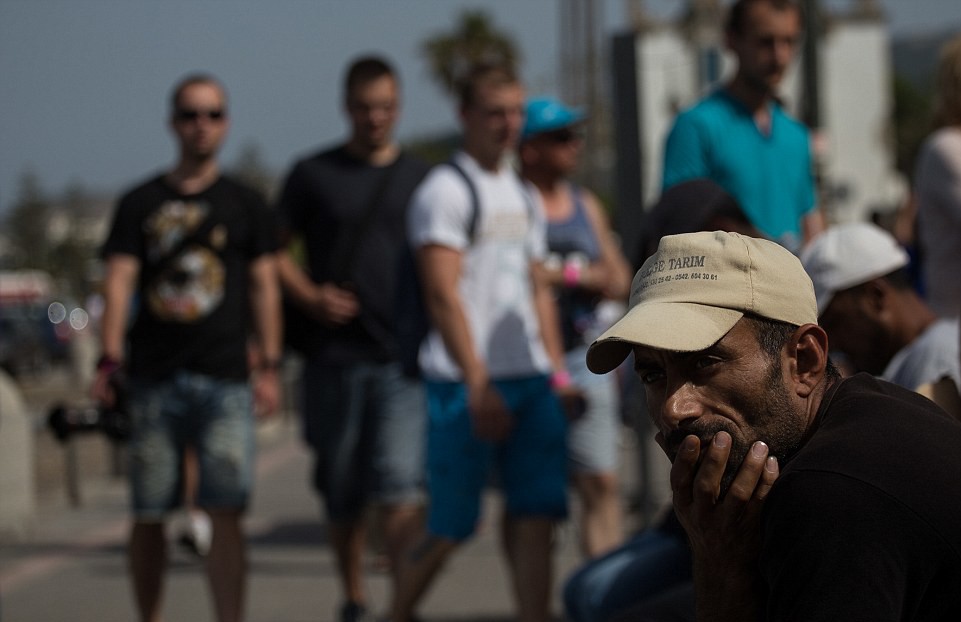The Primitive Tribe
A satire on particularly British, and wider European, attitudes towards refugees fleeing war and climate disaster.

A migrant dreams of home as aloof holiday-makers pass by.
Among the Syrian and Afghan refugees landed on the Greek island of Kos there has been talk of returning to their home-countries after their stay has been disturbed by the ‘awkward’ behavior of British holiday makers. “It is truly appalling,” one grandmother of seven complains, “They are ruining our entire running-away-from-war-torn-states-in-search-of-a-better life experience. They have turned our whole desperate-flight-to-freedom into a nightmare, and we will certainly think twice about returning to Kos next year.”
With over 1,200 migrants arriving in Kos over a very short period of time, Kos has become a popular destination amongst those fleeing for their lives. But, with the nuisance of conceited discourses and rampaging prejudice, will it remain so?
“As we landed, we were accosted by a primitive tribe here who call themselves “holiday-makers”” says a young father, while ladling broth into his malnourished daughters mouth; “We were disgusted by their overfed, sweaty appearance! The men wear white tennis socks in sandals, and the women are crimson and sometimes hit us with rolled up copies of The Sun,”.
The migrants have labeled the holiday makers ‘charter people’, referring to organized package charter trips being the holiday makers main form of transportation. There have been reports of how the charter people cause unease by sitting around in restaurants being hobby-racists and blustering about their deluded and mall-placed outrage. Some have even described how holiday makers sometimes watch as people do everyday things like hanging laundry, cooking on wood stoves, or crying over brutally murdered family members.
“We came to Europe in search of a better life for our children.” Says a widowed mother of four, “We have heard stories of Europe as a place where basic human decency and compassion are respected. So far, thanks to the holiday makers, we have been disappointed. Perhaps living in a conflict-zone is better than living in a society where people are so utterly self-centered and disconnected. ”
A group of refugees are already attempting to construct a return boat out of fish and chips wrappers and broken prosecco bottles. However, others profess a desire to befriend the charter people. One man even came to the aid of a young holiday maker.
“She was badly injured, all we could ascertain was that she worked a journalist for the Daily Mail” says a former Syrian doctor, who rushed to the woman’s aid. “At first it seemed a simple case of rectal cranium immersion. However, by the time I got there it was too late. The woman had already lost all sense of perspective.”



















